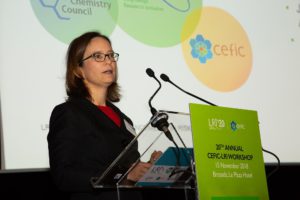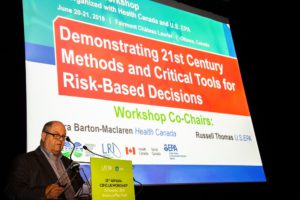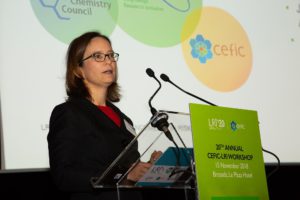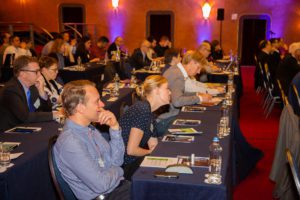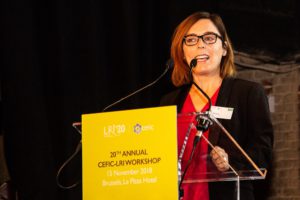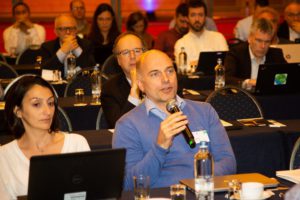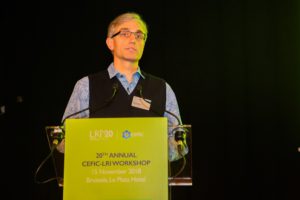The 20th Annual Workshop of Cefic’s Long-range Research Initiative (LRI) programme (#LRI20) took place in Brussels on 14 and 15 November 2018 with the overall theme of celebrating ‘20 years of LRI Advancing Risk Assessment’. The event kicked off on the evening of 14 November with a poster session, a gala dinner and the presentation of the LRI Innovative Science Award to the 2018 recipient Dr David Pamies from Lausanne University, Switzerland. Dr Pamies is the 15th recipient of this prestigious award worth € 100 000.
His winning research proposes a novel approach to identify chemicals that could affect brain development during fetal development, especially substances that could later decrease learning and memory capabilities in children.
Watch here the video of the Cefic-LRI Award Ceremony.
On 15 November, the workshop showcased LRI’s two decades of risk assessment research and a range of results from current key projects. Since its creation in 1999, the programme has funded over 250 projects fostering innovative research to improve science-based decision-making, build inter-disciplinary and international scientific networks and engage with partners around the world to link sound science to chemical risk assessment.
The main workshop sessions were opened by Dr Heli Hollnagel of Dow, Chair of the Cefic LRI Issue Team who reviewed LRI’s achievements over that past two decades and its future challenges. She described LRI as a “A unique programme for the chemical industry and external stakeholders”. To her, the programme isan effective “bridge between public and private stakeholders, and between hazard and risk assessment”, as well as a “valuable source of know-how and expertise, and a radar to receive early warning on emerging risks.”
The first morning plenary session explored some impacts from the LRI’s diverse project portfolio, with a focus on environmental effects and fate. Projects featured work on the use of fish as an alternative test strategy to quantify Adverse Outcome Pathways (AOPs), a discussion on how toxicity in fish livers may interfere with endocrine effects, alternatives to the use of fish in studies on bioaccumulation, how chemical impacts can be modelled in aquatic communities, novel methods for assessing insoluble materials in terms of biodegradation, and the evolution of the General Unified Threshold model of Survival (GUTS) for risk assessment.
After lunch, a second session focused on LRI projects in the area of exposure and predictive toxicity. Featured projects included work on developing an integrated Risk Management Measure library, extrapolating the applicability of worker exposure data to other scenarios, work on predictive classification of chemicals, and the use of knowledge maps based on AOPs to help predict neuro development. The session concluded with a summary of the 2018 ICCA LRI workshop in Ottawa on ‘Demonstrating 21st Century Methods and Critical Tools for Risk-based decision-making’.
Wrapping up the workshop, Dr Pierre Barthelemy, Executive Director for Research & Innovation at Cefic, thanked all contributors and looked forward to more innovative science in the LRI programme in 2019 highlighting the relaunch of the LRI ToolBox scheduled for April 2019.
For more information on the workshop, please consult the final report of the event here.
The presentations are available here.







